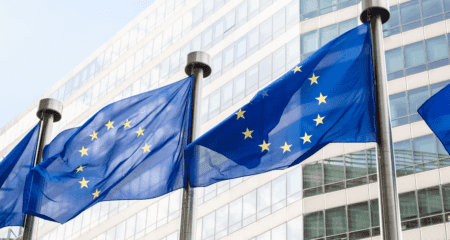European startups get record-breaking investments as a precursor to immense growth within the technology sector.
European businesses are finally easing into normalcy as pandemic restrictions are relieved across the continent. However, this has caused a sudden increase in the number of startups sitting dormant for almost two years in hopes of better economic conditions.
Investors are also ready and poised to get back to work, doling out three times the money provided to startups last year.
Europe is already responsible for 18% of the total funding for startups worldwide, but it has broken all previous records this year.
Swedish startups rule investment rounds
Klarna, a payment handler, and Northvolt, a battery producer based in Sweden, scored huge during their first round of valuation this year.
Northvolt raised $2.8 billion in equity, securing funds from Daniel Ek, the Swedish CEO of Spotify, and Swedish pension funds, among others.
On the other hand, Klarna raised $650 million in a funding round, putting its estimated value well past $10 billion for the first time. This was made possible by some U.S. investment firms and SoftBank.
Wealthy Europeans are ready to invest in technologically advanced, capital-intensive activities, such as production batteries. Thus, the bloc sees “deep tech” activities as a huge priority.
An official from the Commission said, “Deep tech startups are more likely to contribute to green transition and technological sovereignty, but the amount invested is larger, and the return on investment is longer.”
Worrisome elements
However, the European executive body is not keen on the idea of U.S. investors interested in European companies such as Klarna. €10.1 billion have already been invested by the U.S this year and has surpassed the total of last year.
An EU official stated that “There is a big increase of investment from U.S. investors in digital startups, but there is also a direct relation with brain drain. Startups with foreign investors are more likely to relocate.”
Uneven growth in the future
Though Sweden is thriving, the southern and eastern parts of Europe are still not very developed. Luxembourg, France, the Baltics, Germany, and the Nordics perform well in per capita investment. But many eastern and southern European countries can’t keep up.
The European Union agency EIT plans to bridge this gap with a budget of €300 to €450 million to be allocated for those not innovating as they should.
The EIT wants to inspire innovation outside of startup hotspots such as Stockholm, Berlin, and Paris. Martin Kern, the EIT director, said, “The last seven years, we have already built up activities and hubs in Central, Eastern, and Southern Europe, where there is lower innovation capacity.”
This progress is promising, as Eobuwie, an online shoe shop based in Poland, received $130 million this week. SoftBank Vision was the investor.


















